Genesis 1:27 So God created man in his own image, in the image of God he created him; male and female he created them.
Genesis 2:7 …the LORD God formed the man of dust from the ground and breathed into his nostrils the breath of life, and the man became a living creature.
Genesis 2:22 And the rib that the LORD God had taken from the man he made into a woman and brought her to the man.
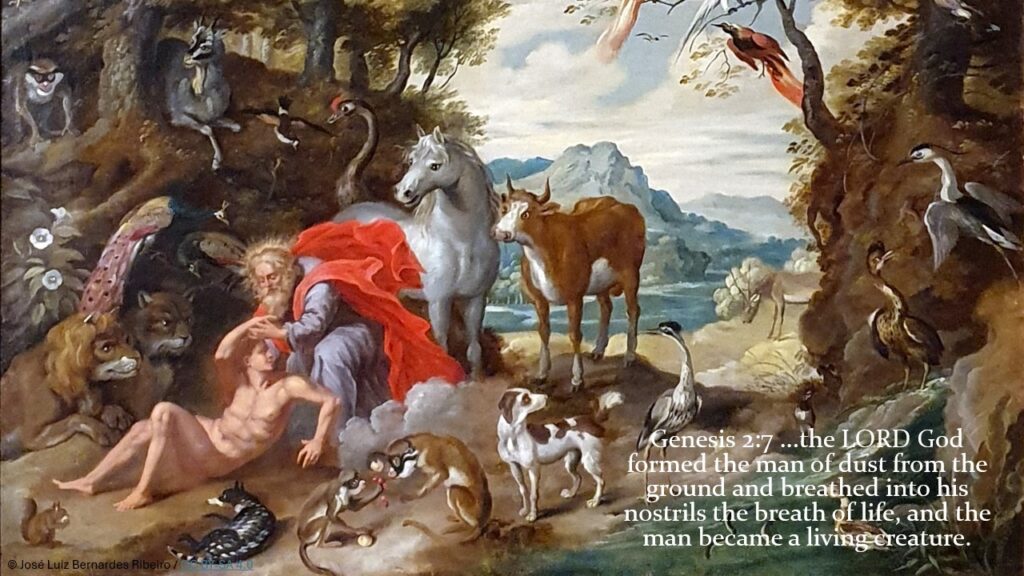
Discussion
The Real Issue
The real issue with natural evolution is the origin and nature of man. Frankly, all the rest of the debate surrounding the concept of natural evolution, for which there is no purpose or direction, is pure “bait and switch.” The origin of life (OOL), neo-Darwinism, and the age of the earth is the battleground, but the fort, which is the real issue at stake for both perspectives, specifically materialism and Christianity, is really summed up as: what is man, and to who is he accountable?
We can talk all day in circles about the finer points of evolution, but when all is said and done, we are likely to just be somewhere different on the same circle that we started on at the beginning of the day. I will cover a few of the major issues regarding the origin of life and the (unlikely, i.e. impossible) evolution of mankind, but as the discussion progresses, keep in mind what is really at stake: to who are you accountable?
Richard Dawkins, a popularizer of natural evolution, made the statement in his book, The Blind Watchmaker, that: “Darwin made it possible to be an intellectually fulfilled atheist.” If Dawkins views that as Darwin’s greatest achievement, then what exactly does that imply?
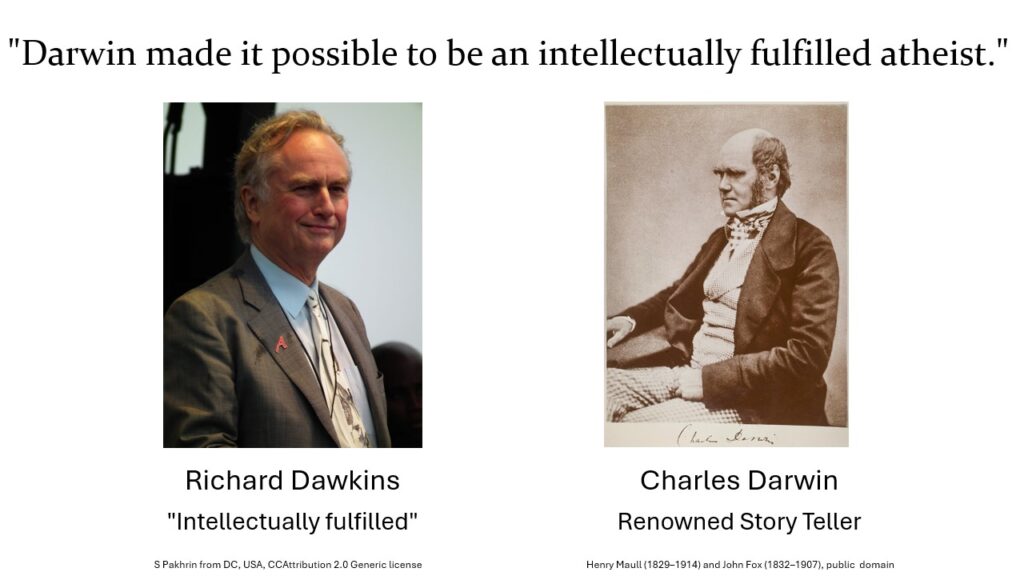
What, if anything, did Darwin prove?
It does imply that Darwin didn’t actually prove anything from a scientific perspective, he simply provided a means for people, who prefer to be atheists, to provide themselves with a veneer of “high-brow” respectability. You may be surprised to hear, or you may doubt my suggestion that Darwin didn’t actually prove evolution, but to prove evolution would require that he had actually identified the mechanism of biological change.
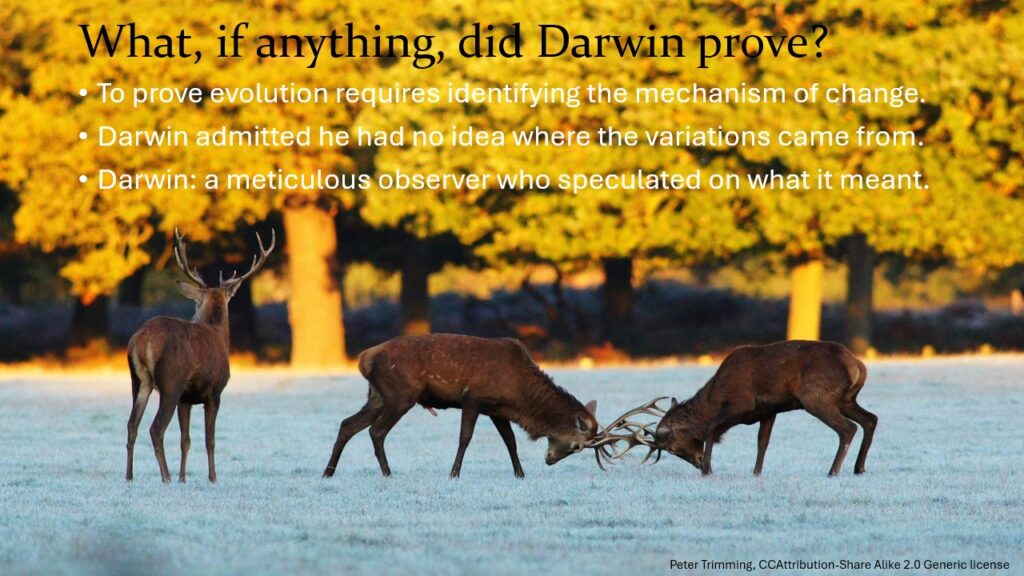
At this point, you may feel inclined to jump to his defense and point out that he discovered natural selection. However, natural selection is not the source of change. “Natural Selection” is a process that may operate on biological change after it has occurred. Even Darwin admitted several times in his book, “On the Origin of Species…,” in chapter 5 and elsewhere, that he had no idea where the variations he studied actually came from. Darwin was a meticulous observer and recorder of nature in all its many forms, who speculated on the implications of the variations that he observed, without actually understanding their source.
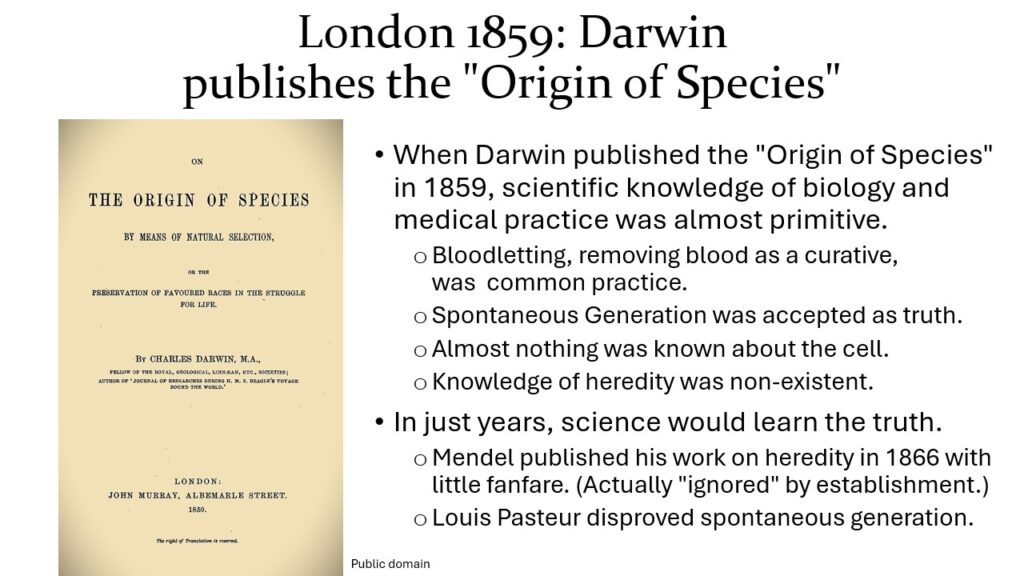
Mendelian Genetics
It was Gregor Mandel, an Augustinian friar as well as a biologist, meteorologist and mathematician who identified the genetic basis of biological heredity that defines the actual boundaries of biological variations apart from “copying” mistakes that can occur when the gamete (reproductive) cells are produced. Mandel published his discoveries in 1866, just seven years after Darwin published the “Origin of Species…” If Darwin had been aware of Mendel’s work, he might well have reconsidered his own life’s work.
When Darwin did publish in 1859, knowledge that today is taken for granted, regarding the rudiments of life, were not well known. For example, almost nothing was understood about individual cells, which just appeared to be a bit of “gelatinous” goop when observed under the microscopes available at that time.
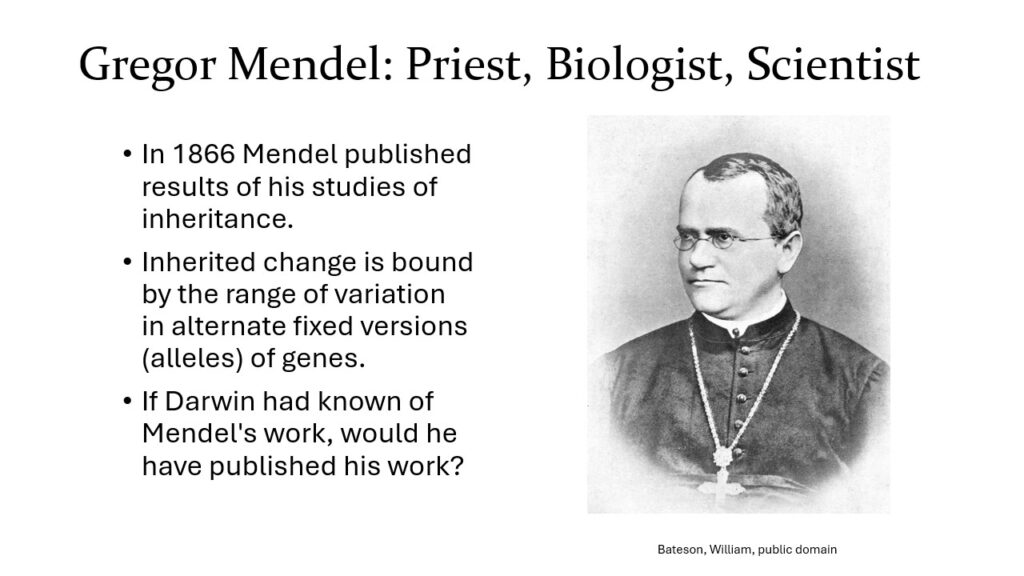
“Life only comes from Life”
There was even controversy regarding the concept of “spontaneous generation” in which it was supposed that a “life force” permeated the world that resulted in (microbial) life being generated spontaneously without any predecessors. It was not until Louis Pasteur, a brilliant biologist, proved about 1860, via clever experiments, that there was no permeating “life force” and therefore it was highly improbable that there had ever been a naturally induced, spontaneous generation of life. He is famous for articulating this observation with the simple dictum: “Life only comes from Life.”
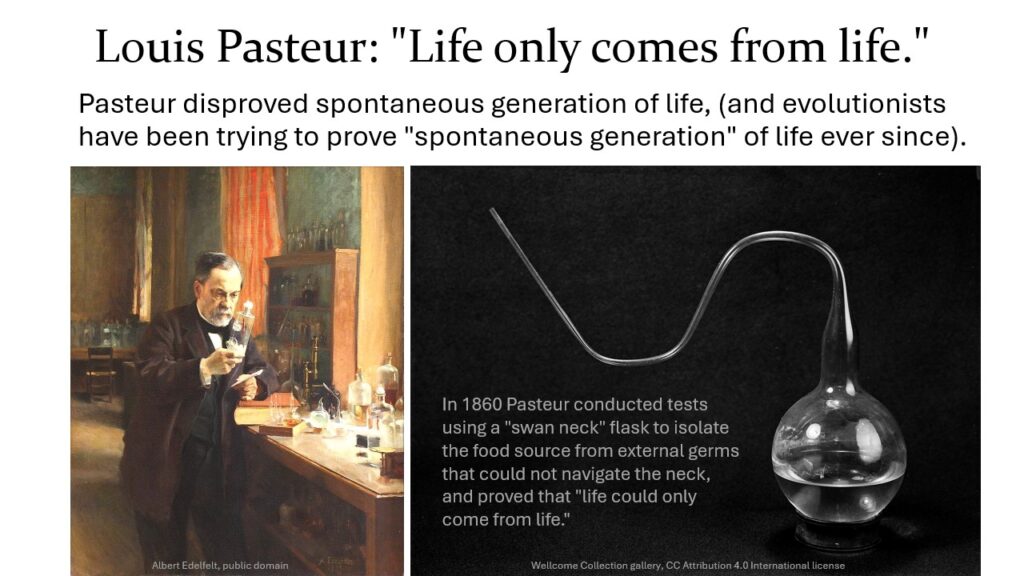
Therein lies the rub for evolution. There can be no evolution without life, and there can be no “origin of life” without life. Millions, perhaps billions, of dollars have been spent and at least a century of speculation and experiments have been expended by the most brilliant and educated people on planet earth, and in all that time, after all that effort, there has never been a successful generation of anything even approximating reproductive and adaptive “life” from inert, natural materials employing any supposed natural conditions thought to be necessary for originating life. Some may claim it will only be a matter of time before they succeed, which is a statement of hope (even evolutionists have “faith”) rather than fact.
Is change always good?
Many brilliant people have concluded that humans and great apes have a common ancestor. Some have concluded this despite spending years attempting to prove it without great success. You may question my comment regarding their efforts, but it is nearly impossible to prove something that has never been observed (specifically man’s evolution), is not repeatable (having “happened” over the course of “millions” of years), with scarce data from extinct hominids that is susceptible to various interpretations (even among those who believe in evolution). Belief is not the same as proof.
Of course, many will say that there is the “principle of evolution,” which is simple common sense based on observation. Yes, variation is certainly observable, but any engineer worth their university degree will caution against extrapolating beyond what is directly observable.
Most variables of interest in naturally occurring systems like weather, eco-systems, and biology are non-linear, meaning fundamentally that “too much” of a good thing is not good. Take for example rain. Rain is good, but a deluge is bad. In eco-systems, predators are necessary, but unchecked predation will devastate an eco-system. In biology, nutrition is good, but too much food is bad for health. And the list goes on. Therefore, some change in a species is good for adaptive purposes, but too much change is actually observed to be harmful. Take for example highly bred dogs that have problems with their bone structure and organs, or are susceptible to diseases like cancer.
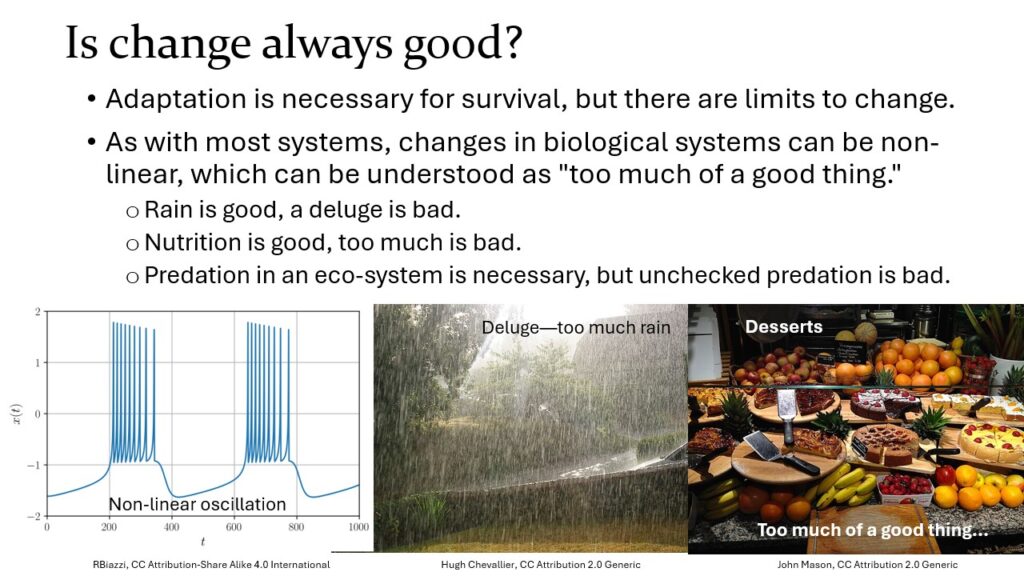
It is interesting to consider what is actually observable today in the human genome, from generation to generation. Specifically, there are approximately 100 “defects,” or copy mistakes, incorporated into each person’s genome with each generation. From an evolutionary perspective that sounds good, but what are those “copy” errors actually doing inside the genome? Unfortunately, the news is not so good.
Genetic Entropy is bad news
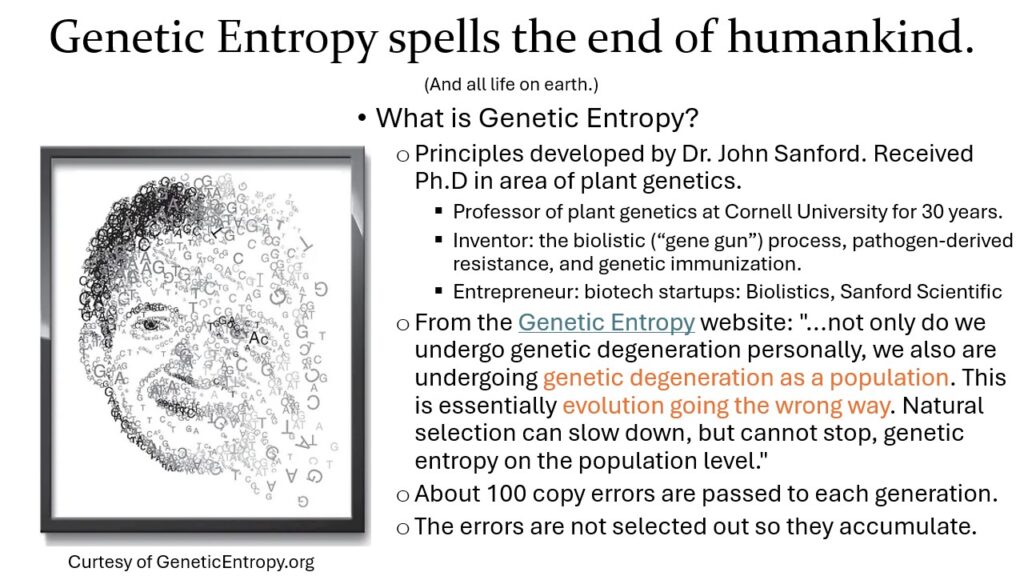
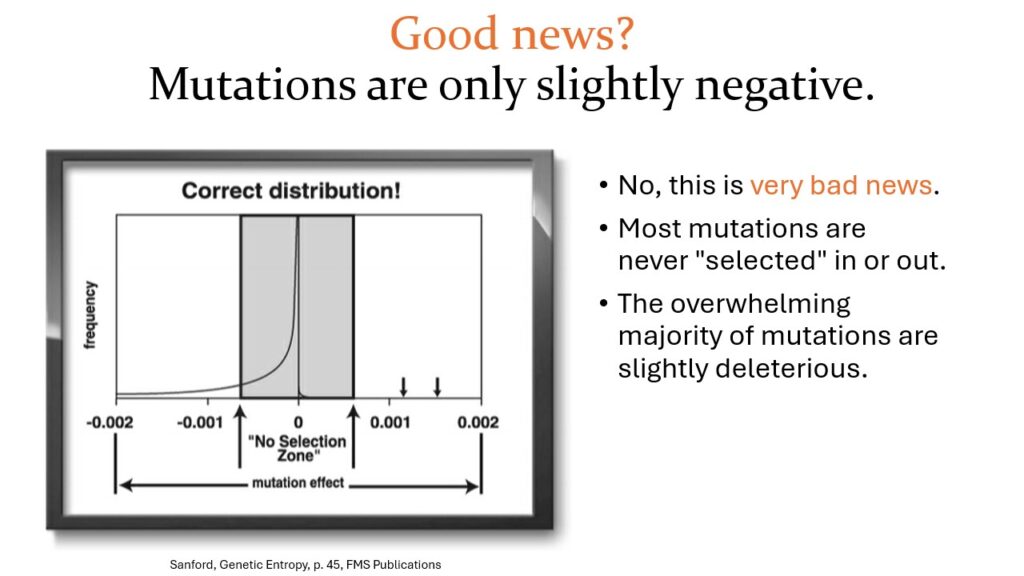
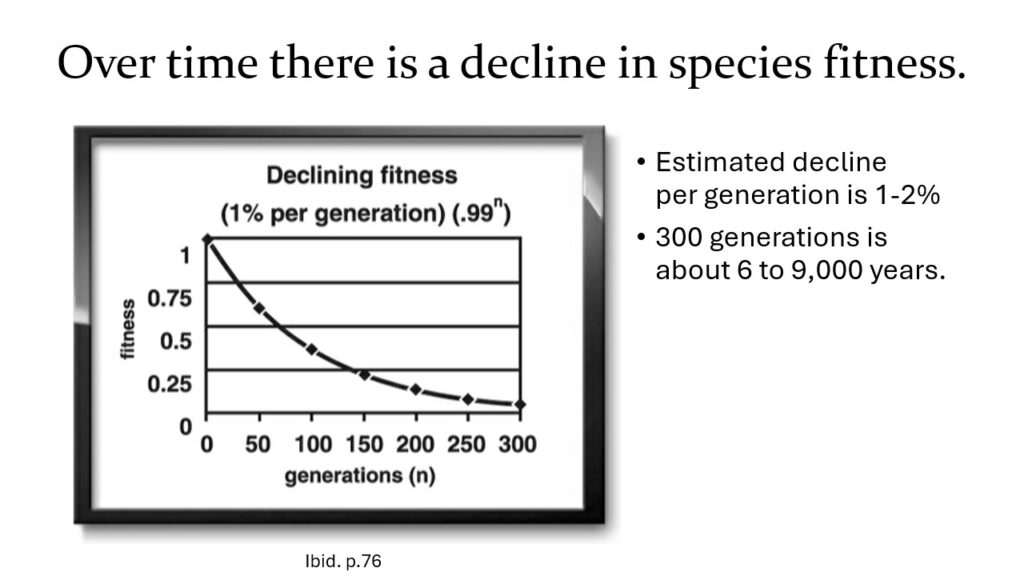
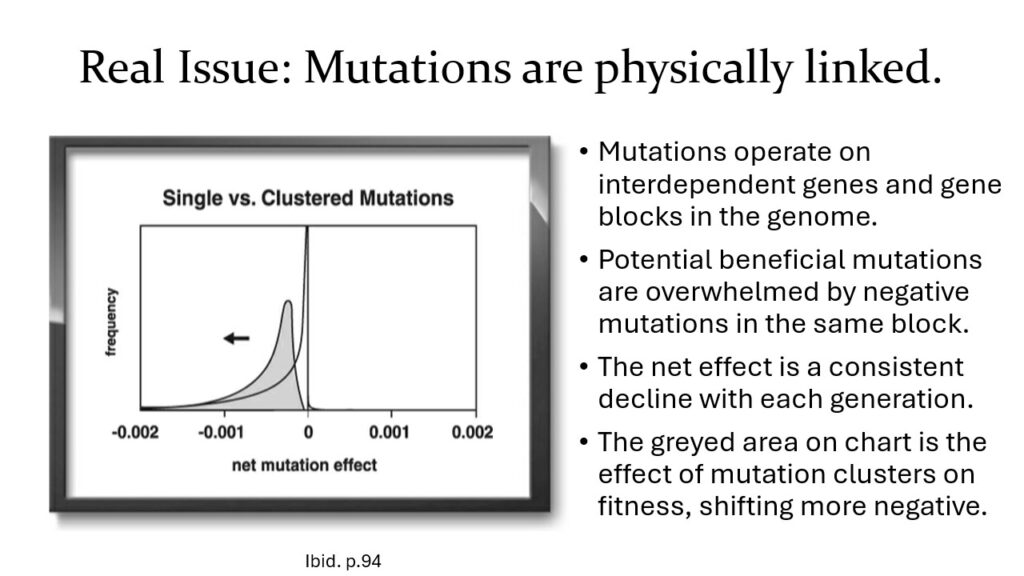
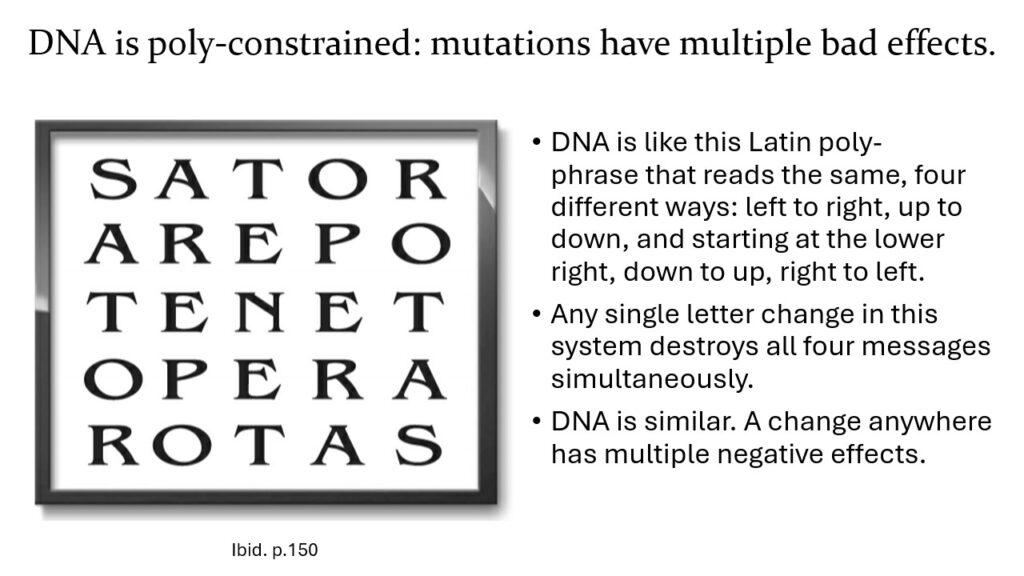

Who’s right: God or Richard Dawkins?
In 2009, Richard Dawkins was a co-sponsor of a campaign to broadcast his perspective on life and God by plastering the following slogan on the sides of about 800 London buses. “There’s probably no God. Now stop worrying and enjoy your life.”
There is an odd presumption in this recommendation, which seems to be that if there is a God he must be a big, powerful and hateful ogre who’s only purpose in existing is to make sure you don’t have any fun. In fact, that appears to be the actual message of this slogan. In other words: “you may or may not be enjoying your life right now, but if there is a God you will definitely not enjoy life.” An entire book could probably be written to address whether or not God is an ogre, but the words of Christ seem to fit here: “I came that they may have life and have it abundantly. I am the good shepherd. The good shepherd lays down his life for the sheep.” (John 10:10-11)
